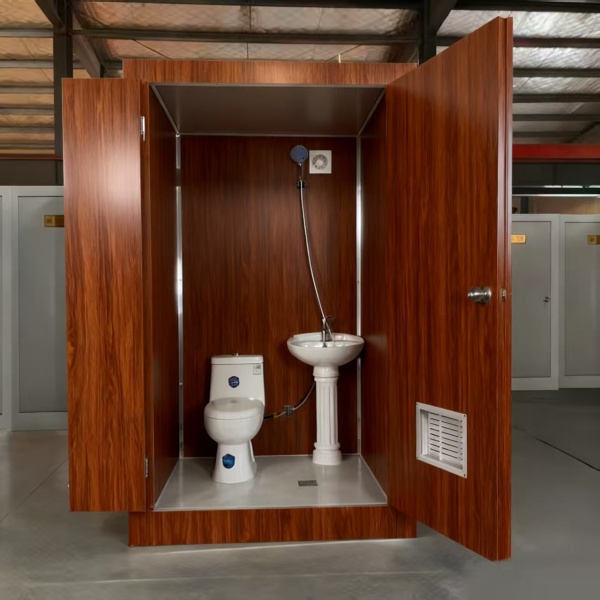-
E-mail
Austin120521@outlook.com -
E-mail
sales@jujiuhouse.com -
Telephone
+86-17864099991 -
Telephone
+86-17854044442
- Chinese
- French
- German
- Portuguese
- Spanish
- Russian
- Japanese
- Korean
- Arabic
- Irish
- Greek
- Turkish
- Italian
- Danish
- Romanian
- Indonesian
- Czech
- Afrikaans
- Swedish
- Polish
- Basque
- Catalan
- Esperanto
- Hindi
- Lao
- Albanian
- Amharic
- Armenian
- Azerbaijani
- Belarusian
- Bengali
- Bosnian
- Bulgarian
- Cebuano
- Chichewa
- Corsican
- Croatian
- Dutch
- Estonian
- Filipino
- Finnish
- Frisian
- Galician
- Georgian
- Gujarati
- Haitian
- Hausa
- Hawaiian
- Hebrew
- Hmong
- Hungarian
- Icelandic
- Igbo
- Javanese
- Kannada
- Kazakh
- Khmer
- Kurdish
- Kyrgyz
- Latin
- Latvian
- Lithuanian
- Luxembou..
- Macedonian
- Malagasy
- Malay
- Malayalam
- Maltese
- Maori
- Marathi
- Mongolian
- Burmese
- Nepali
- Norwegian
- Pashto
- Persian
- Punjabi
- Serbian
- Sesotho
- Sinhala
- Slovak
- Slovenian
- Somali
- Samoan
- Scots Gaelic
- Shona
- Sindhi
- Sundanese
- Swahili
- Tajik
- Tamil
- Telugu
- Thai
- Ukrainian
- Urdu
- Uzbek
- Vietnamese
- Welsh
- Xhosa
- Yiddish
- Yoruba
- Zulu
- Kinyarwanda
- Tatar
- Oriya
- Turkmen
- Uyghur

portable homes that fold out
html
The Versatile World of Portable Homes That Fold Out
In recent years, the concept of portable homes that fold out has captured significant attention, especially among those seeking innovative, flexible living solutions. Let’s dissect some industry insights often overlooked in mainstream discussions.
Understanding the Basics
The simplicity behind portable homes that fold out is deceptive. Many assume they are just novelty items meant for temporary use. However, these homes offer much more, functioning as long-term living spaces, emergency shelters, and even luxury retreats.
A key player in this arena is Shandong Jujiu Integrated Housing Co., Ltd. (jujiuhouse.com), which emphasizes research and development in creating reliable, foldable structures. They've managed to enhance durability while maintaining portability, a balance crucial for real-world applications.
Misconceptions persist, particularly around the structural integrity of these homes. Many novice users worry they might collapse easily. But with advancements in materials and engineering techniques, companies like Jujiu have crafted designs that withstand harsh weather and substantial usage.
From Design to Reality
Designing a portable home isn't as simple as scaling down a traditional house. There are unique challenges such as weight distribution, ease of assembly, and transportation logistics. Firms must consider these factors during the R&D phase.
For example, high-strength alloys are often employed to keep the structure light yet strong. Shandong Jujiu excels here, integrating cutting-edge materials that provide both flexibility and resilience. Their solutions are not only practical but also aesthetically pleasing.
Then there's the matter of insulation. Portable homes inherently face difficulties in maintaining consistent indoor temperatures. Jujiu has addressed this with innovative insulation technologies that ensure comfort regardless of external conditions.
Applications in Various Sectors
Beyond personal use, these adaptable homes find applications in disaster relief and remote workforce housing. Imagine a natural calamity striking, and within hours, a community of fold-out homes is providing shelter to displaced individuals.
Energy efficiency is another highlight. Jujiu leads the way with solar-powered options, reducing dependency on external energy sources. In areas with limited infrastructure, this self-sufficiency is invaluable.
Moreover, the military and research teams often employ such homes in remote locations. Their quick deployment and retractable nature make them ideal for missions requiring temporary bases.
Challenges Along the Way
No innovation is without hurdles. One persistent issue is customization. Clients often desire unique layouts and features. Accommodating these demands within the constraints of foldable architecture can be tough but not impossible with creative approaches.
Another challenge is the public perception of value. Some potential buyers balk at the idea of spending on what they perceive as a 'temporary' dwelling. However, the cost-effectiveness, coupled with longevity, makes these homes a wise investment.
Transport logistics can pose problems, too. While these homes are designed to be mobile, getting the units to far-flung locales can be tricky. Coordinated efforts are needed to ensure smooth and timely deliveries.
Optimizing for the Future
The future of portable homes that fold out looks promising, especially with companies like Shandong Jujiu Integrated Housing Co., Ltd. at the forefront. Their commitment to ongoing research means continuous improvement in areas like sustainability and resilience.
There’s a growing trend of incorporating smart technologies. Imagine a fold-out home equipped with IoT devices, allowing for automated climate control and security monitoring. The potential here is enormous, with endless applications yet to be fully explored.
As urban spaces shrink and environmental concerns rise, these portable solutions may become mainstream. They represent a significant shift in how we think about housing, blending flexibility with sustainability.
Related products
Related products
Best selling products
Best selling products-
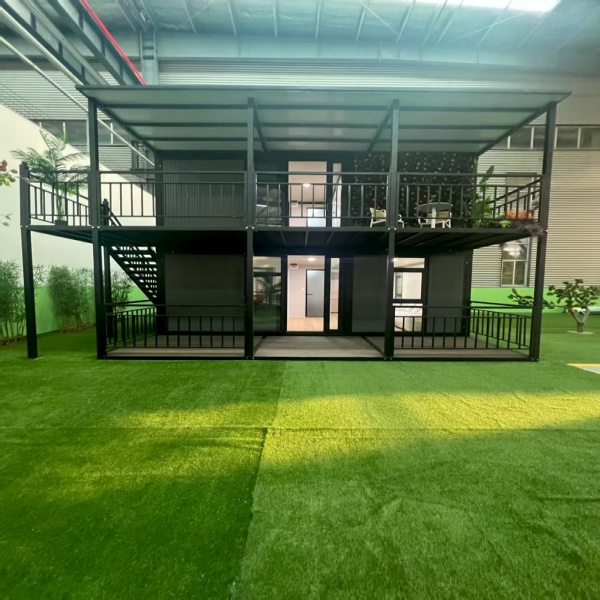 Luxury foldable two-story container houses in luxury resort hotels and villa hotels
Luxury foldable two-story container houses in luxury resort hotels and villa hotels -
 A container house with a terrace and double-wing folding design, suitable for various purposes such as offices, meeting rooms, living rooms, etc.
A container house with a terrace and double-wing folding design, suitable for various purposes such as offices, meeting rooms, living rooms, etc. -
 Factory Direct Sales Office Folding Container Luxury House Living Container House
Factory Direct Sales Office Folding Container Luxury House Living Container House -
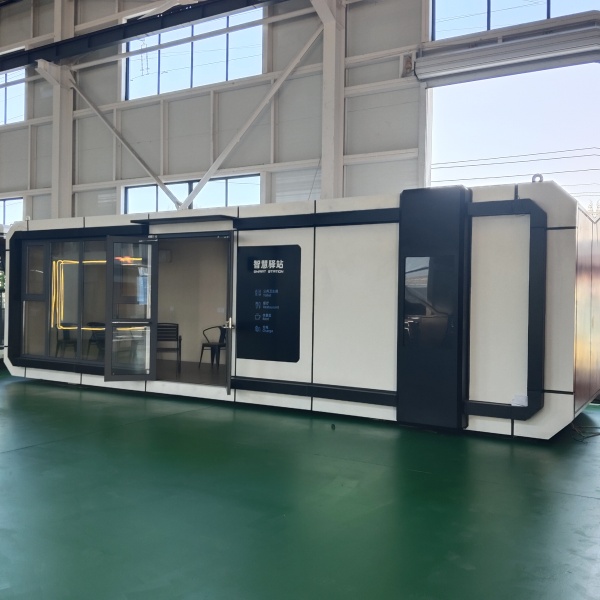 Modular modern movable apple cabins, customized high-end folk houses and portable bedrooms, delivered as a whole
Modular modern movable apple cabins, customized high-end folk houses and portable bedrooms, delivered as a whole -
 Detachable Design Prefabricated Container House Portable Modular Office Building Folding Container House
Detachable Design Prefabricated Container House Portable Modular Office Building Folding Container House -
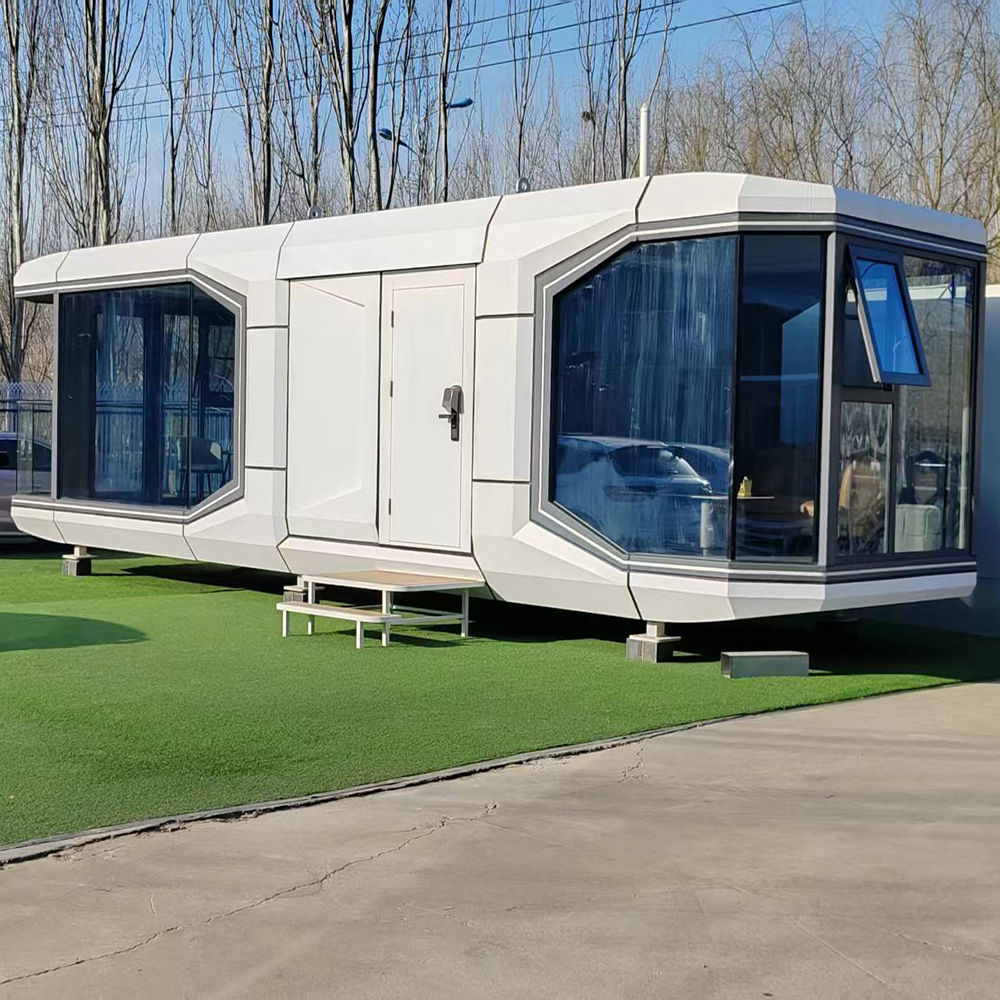 Luxury High Quality 2 Bedroom Container Home Prefabricated Steel Space Capsule for Office Shop Hotel or Outdoor House
Luxury High Quality 2 Bedroom Container Home Prefabricated Steel Space Capsule for Office Shop Hotel or Outdoor House -
 Reasonable Price 1 Bedroom Modular Container House Folding Container Home for Villa or Apartment Use
Reasonable Price 1 Bedroom Modular Container House Folding Container Home for Villa or Apartment Use -
 Hot-selling foldable container houses, expandable prefabricated houses, suitable for office or living use, with fast delivery.
Hot-selling foldable container houses, expandable prefabricated houses, suitable for office or living use, with fast delivery. -
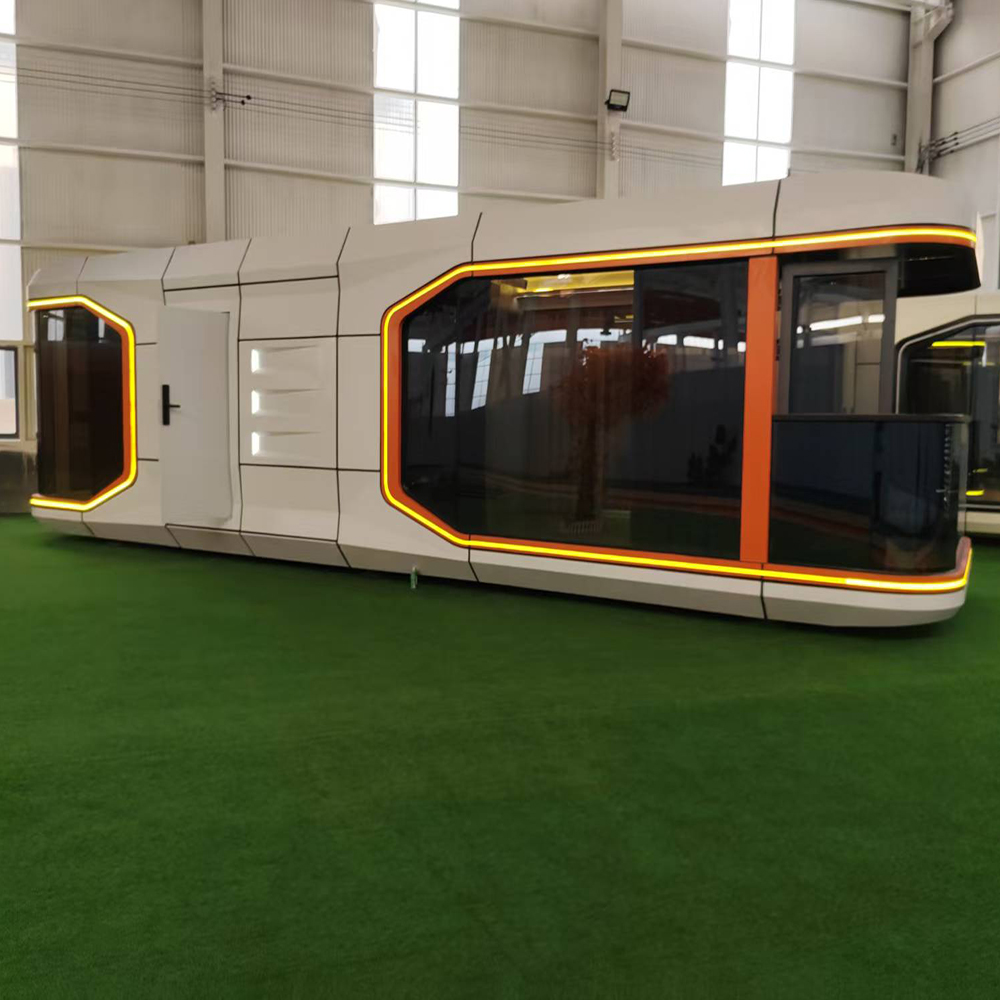 Standard Modern Camping Pod Space Prefabricated Portable Mobile Capsule Room Hotel Bathroom Prefabricated Spaceship House
Standard Modern Camping Pod Space Prefabricated Portable Mobile Capsule Room Hotel Bathroom Prefabricated Spaceship House -
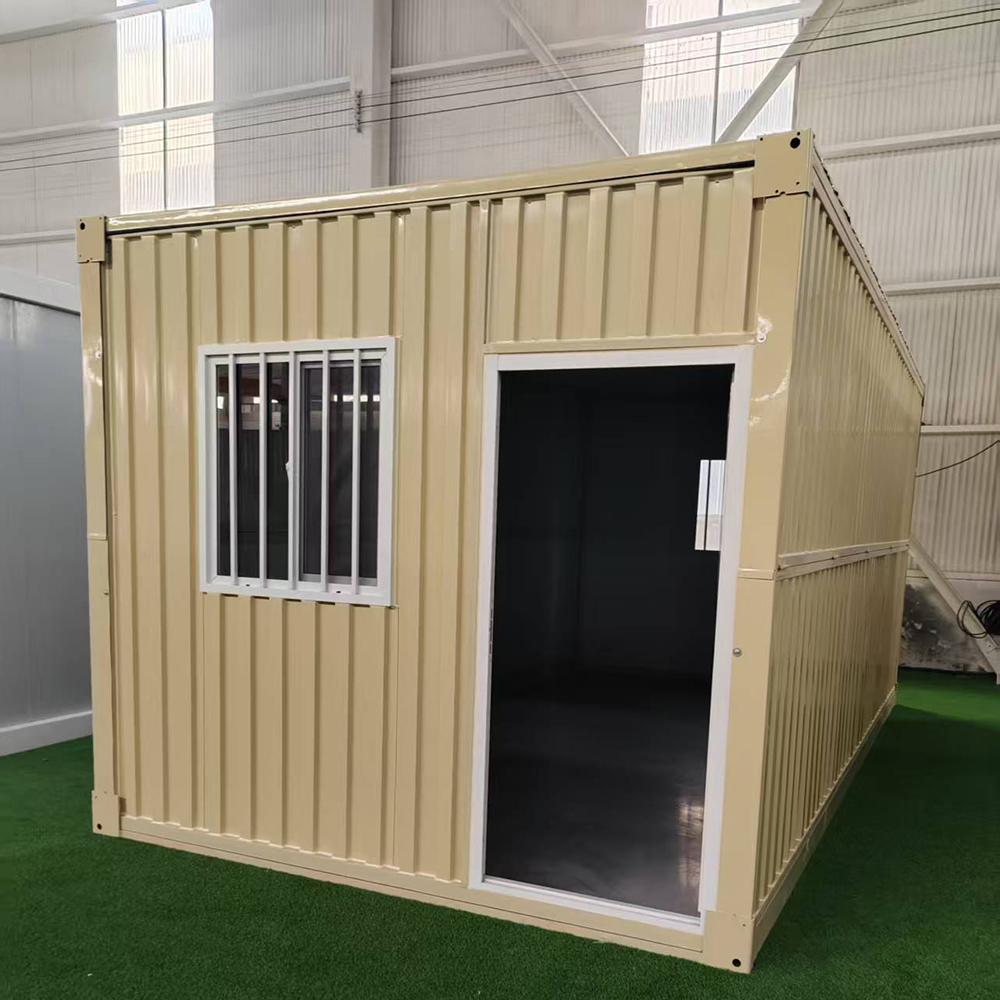 Competitive Price Portable Container House Foldable Container Mobile Living Modular Homes
Competitive Price Portable Container House Foldable Container Mobile Living Modular Homes -
Two Wing Folding Expandable Container House
-
 The foldable container house with side wing design can be quickly set up and is suitable for various environments.
The foldable container house with side wing design can be quickly set up and is suitable for various environments.
Related search
Related search- folding container house usa
- China container fold out house
- China small folding house
- Buy price folding container house with toilet
- Buy fold out modular homes
- China space capsule cabin
- bastone mobile expandable prefab house 19ft x 20ft
- China apple pod cabin garden cabin
- China container prefabricated house
- prebuilt container house











